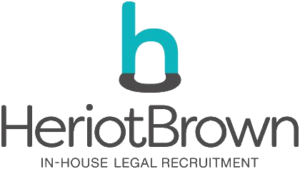Heriot Brown’s Regional GC Roundtable series continued this month on the subject of ‘Support Function to Trusted Advisor’. Hosted by Senior Consultant Michi Nishikawa, the discussion was carried out across 3 sessions involving GCs, Heads of Legal, Legal Directors and Sole Counsels from various sized organisations across a broad range of sectors.
These sessions brought up the following three key themes from the question of how to go from being viewed as a support function to being a trusted advisor to the business:
Visibility
Visibility within an organisation was viewed as a key component to being a trusted advisor. As the functional lead, where you sit within the organisation and the individual person whom you report to at any given time plays a large part in the level of influence that the legal function can have as a whole.
The discussion explored how the size of the organisation, its sector, appetite for risk and culture of compliance all had an effect on the visibility of the legal function. In larger companies it was noted that internal brand visibility can be increased by grouping different business areas together e.g., legal, compliance and risk to ensure purpose in numbers. In addition, establishing business partners to promote the ownership and brand of individual team members was viewed as an effective way of increasing overall visibility.
Relationship Building
Beyond organisational strategy, the sessions highlighted the importance of proactive relationship building. This meant anticipating various challenges within the business and establishing regular catch ups with relevant internal clients to ensure legal’s involvement at the beginning of each process. Equally, it was noted that using the right language, adapting to different departments and communicating concisely lies at the heart of relationship building and developing trust.
Pushing Back
Finally, the sessions demonstrated that being a trusted advisor or a safe pair of hands can risk being relied upon too heavily. Although the Legal function is often thought of as the ‘central nervous system of the business’, as one GC stated, ‘doing what people ask is a recipe for disaster’ and knowing when to push back is essential.
Suggestions around this included creating a risk register, setting up and being transparent around KPIs, implementing training sessions to make teams feel more empowered; and simply asking relevant questions rather than giving into the habit of needing to provide all the answers.
Concluding Remarks
At whatever stage the legal function is in; whether it’s setting up from scratch or being part of a well-established, multidisciplinary unit, invariably being a trusted advisor is a gradual process and a position that must be reaffirmed with every transform that the business undergoes. Equally, trust in the in-house legal function is often a result of mistakes being made by the wider business, with lessons learnt to include legal sooner, thus strengthening its position. Finally, in the most basic sense, the value of the in-house legal function is most obvious in its absence; when there is a gap in headcount and the business has to foot the bill for external panel support!
